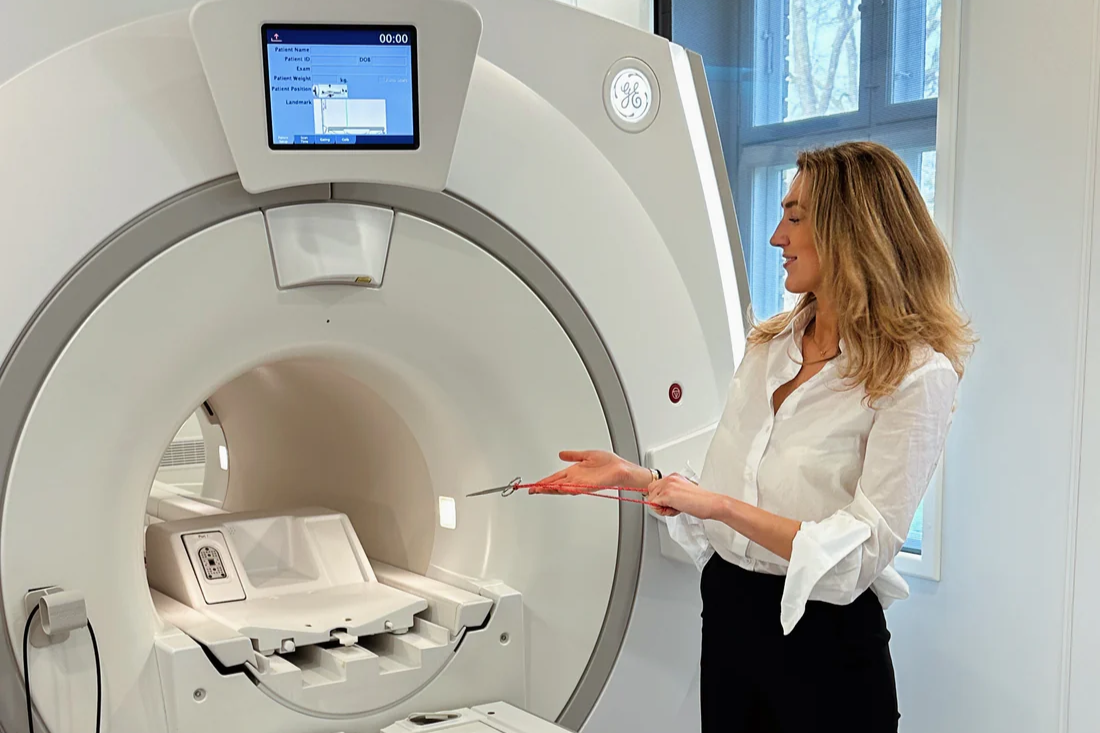
Valida Health health check
Your health is crucial to your well-being, and our health check gives you the ultimate insight into your current health status, while we proactively work to prevent potential illnesses.
Based on your situation, we help you prevent disease and create a customized path to optimal health. Take the first step towards a healthier future with our experienced healthcare professionals.
Read more about our health packages.
Customization options:
Analysis of blood markers
Blood marker analysis provides a detailed insight into the body's functional state and can identify imbalances, deficiencies or signs of disease, often before symptoms occur. We offer a wide range of analyses, covering everything from general health parameters to more specific diagnostic markers.
Examples include:
- Hemoglobin and ferritin, which are used to assess iron status and possible anemia.
- TSH, T3 and T4, to assess thyroid function.
- HbA1c and glucose, which are central to screening for diabetes and insulin resistance.
- Cholesterol, HDL, LDL and triglycerides, for assessing cardiovascular risk.
- Vitamin D, B12 and folate, which are often tested for fatigue, decreased immune function or neurological symptoms.
- Liver and kidney values such as ALT, creatinine and albumin to assess organ function.
- Inflammatory markers such as CRP and leukocytes, which may indicate infection or chronic inflammation.
- Testosterone, FSH and LH, for hormonal disorders in men and women.
Read more about blood tests here.
Blood pressure and pulse
Measuring systolic and diastolic blood pressure and resting heart rate provides important insight into the state of the circulatory system. High blood pressure is one of the most common and underdiagnosed risk factors for cardiovascular disease. The examination is recommended for all adults as a basic preventive measurement.
Body fat measurement
Body composition analysis, including fat mass and muscle mass, provides a more accurate picture of health status than weight alone. Body fat percentage measurement is particularly relevant when monitoring weight loss, metabolic diseases or exercise regimens.
Stethoscopy of the heart and lungs
Auscultation with a stethoscope is used to assess the function of the heart and lungs. It can reveal murmurs from heart valves, irregular heartbeats, crackles from lung involvement, or signs of fluid retention. It is recommended for symptoms such as shortness of breath, fatigue, or palpitations.
Blood oxygen saturation
Measuring oxygen saturation (SpO2) via pulse oximeter indicates how effectively the body is oxygenated. Low oxygen saturation may be a sign of impaired lung function, sleep-related breathing disorders or circulatory problems. The study is non-invasive and suitable as a screening tool.
Scans
CT, MRI, DEXA and echocardiography are advanced imaging methods used to visualize the body's internal structures and assess the functions of organs and tissues. The choice of examination depends on the symptom picture, clinical suspicion and need for clarification.
- CT scan (Computed tomography)
CT is used to create detailed cross-sectional images of the body using X-rays. It is often used to detect changes in the lungs, brain, organs and bones – for example, when cancer, blood clots, internal bleeding or foci of infection are suspected.
- MRI scan (Magnetic Resonance)
MRI uses a strong magnetic field and radio waves to create images of soft tissues and organs. It is particularly suitable for assessing the brain, spine, joints, muscles and certain organ changes. MRI does not use ionizing radiation and is frequently used for neurological or orthopedic problems.
- DEXA scan (Bone mineral density)
DEXA is an accurate measurement of bone mineral density and is primarily used to diagnose osteoporosis (brittle bones). The scan is important in assessing fracture risk, especially in postmenopausal women, the elderly, or people with risk factors for bone loss.
- Echocardiography (Ultrasound of the heart)
Echocardiography uses ultrasound to assess the structure and pumping function of the heart. The examination is essential for symptoms such as shortness of breath, chest pain, palpitations, or suspicion of heart failure, valvular disease, or congenital heart defects.
Read more about scans here .
Intestinal flora test
Analysis of the gut microbiota via stool sample maps bacterial composition, diversity and possible imbalances. Used for long-term digestive problems, bloating, irritable bowel syndrome (IBS) or suspected impaired immune function related to the intestinal environment.
Read more about intestinal diagnostics here .
Food intolerance test
Blood test based on a food allergy test that analyzes the body's reactions to a variety of foods via antibody measurement (IgG). Relevant for unexplained symptoms such as fatigue, indigestion, skin problems or headaches, where classic allergies are excluded.
DNA Testing
Comprehensive DNA analysis provides insight into individual genetic variations that affect health, disease risk, and the body's response to lifestyle factors. The test is increasingly used in precision medicine to prevent disease, optimize health, and tailor treatment.
The analysis can reveal:
- Nutrigenetics – genetic variation in the absorption and metabolism of nutrients, vitamins and minerals.
- Training response and metabolism – how the body responds to different forms of training and tends towards fat storage or weight loss.
- Stress and sleep – genetic vulnerability to stress, sleep disorders and mental stress.
- Pharmacogenetics – how the individual metabolizes medication, with relevance to dosage and risk of side effects.
- Inflammation and disease risk – tendency towards chronic inflammation and lifestyle diseases such as cardiovascular disease, diabetes and autoimmunity.
- Skin aging and barrier function – genetic factors that affect skin resilience and aging.
- Behavioral and motivational patterns – with relevance to habit formation, reward systems and lifestyle choices.
The results are used to design a personal health strategy with recommendations for diet, exercise, recovery and possible medical treatment. The analysis is particularly relevant for people interested in prevention, health optimization and individualized treatment.
Read more about DNA Testing here .

Collaboration with Progardia
It is with great pleasure that we at Valida Health can offer our clients the ultimate health check, including full-body scans in collaboration with Progardia. By combining the highest medical expertise with the latest MRI technology, we help give you the most comprehensive and accurate assessment of your health.
With access to Progardia's professional and clinical environment in Middelfart, clients on Funen and Jutland are also catered for.
Book an appointment for your health check-up
The consultation takes place over the phone where we together tailor the right health check for you.
Frequently Asked Questions
Do you do health checks for companies?
Yes. We offer health checks, vaccinations and other tailored solutions for both small and large businesses.
Who should book a health check?
Suitable for those who want to prevent disease and optimize their health. We have different health packages to choose from.
Can you come to our home and do a health check?
Yes, we offer our mobile team of healthcare professionals to come to you if you are 10+ people.
